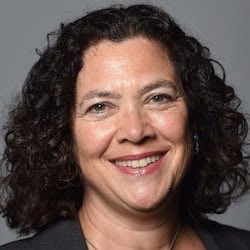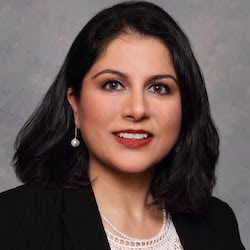
We asked a range of high-calibre investors and tech transfer leaders from around the world for their views on the past year and their predictions for the year ahead. The following insights are one segment of a multi-part series that also includes our annual data analysis, a look at initiatives launched by universities last year, comments on why staffing and deeptech were top of mind in 2022 and views on what 2023 may bring.

Karin Immergluck, associate vice-provost, Office of Technology Licensing (OTL), at Stanford University, notes: “The OTL’s High Impact Technology Program has been launched with a pilot programme and an initial $17m fund to further develop promising technologies that haven’t yet found a commercialisation partner. We funded our first cohort of eight proof-of-concept projects, two of which have received technology development funding from the Sustainability Accelerator, while we fund market assessments and provide mentoring for the go-to-market strategies.”

Kimberly Gramm, chief innovation and entrepreneur officer at Tulane University, celebrates: “Tulane’s Innovation Institute was the recipient of a US Treasury SSBCI fund. The $5m is matched with an additional $5m Tulane monies. The fund will help support women and minority startups and small businesses that are technology-based or enabled in the health, data/AI, and energy sectors.
“The Institute, in collaboration with the Office of the Provost, has also launched the Provost Proof of Concept Fund awarding up to $250,000 annually. Tulane faculty and graduate students/postdocs will compete for an award of up to $50,000 to develop and de-risk a technology based on university research with strong commercial potential.”

Kelly Sexton, associate vice-president for research and Innovation Partnerships at University of Michigan (U-M), reflects: “Our early-stage venture fund — the Accelerate Blue Fund (ABF) — reached a new milestone in 2022 when we made our investment into an 11th U-M startup. It’s been gratifying to see the impact that ABF is having on its portfolio of companies. Already we have seen that our startups have gone on to attract $23 in follow-on capital for every $1 that we have invested from ABF. The fund has also created stronger ties between our office and the venture community.”

Peter Devine, chief executive of multi-university venture firm Uniseed, says: “2022 has been a very successful year for Uniseed. Of particular note is the partnership with Australian university superannuation fund UniSuper, with a commitment of $75m managed by Uniseed. Interestingly, this is not a timed commitment but rather an allocation to the fund that can be drawn down as needed, with nearly half of these funds already committed. Once the funds are fully drawn, it is anticipated further funds will be available for investment by Uniseed. The UniSuper partnership provides Uniseed with sufficient capital to fully support seed rounds, as evidenced by recent new investments (Analog Quantum Circuits, Tiny Bright Things and BioScout).
“Another major milestone achieved in 2022 was Uniseed startups collectively raising over $1bn from Uniseed’s investment, other investors and non-dilutive funding such as grants. During 2022, Uniseed invested $2.9m, which was leveraged from investment by Uniseed’s partner UniSuper $16.7m, other investors $158.2m and non-dilutive funding of $18.9m.
“Uniseed also completed two major transactions this year. Aurtra’s power asset management through online minoring and analytics was sold to Schneider Electric in a deal that returned 4.4 times funds invested. And BT Imaging merged with TSXV-listed Canadian company Aurora Solar Technologies via a scrip for scrip transaction.”

Kalpa Vithalani, executive director of technology transfer at Marquette University, tells GUV: “Marquette received its largest federal award to date for water-related research — $3.8m from the U.S. Army Corps of Engineers — to fund an ambitious programme, Novel Technologies to Mitigate Water Contamination for Resilient Infrastructure, which the researchers have given a more memorable name, In Defense of Water. Working with colleagues from the Army Corps’ Engineer Research and Development Center, four multidisciplinary research teams from Marquette are pursuing solutions to high-priority water quality issues such as field-based wastewater recycling, antibiotic-and antiseptic-resistant pathogens, and more. The projects are anticipated to generate new IP and will help the Army promote sustainability, resilience and health for troops and civilians alike.”

Yasser Biaz, chief executive of UM6P Ventures, the venture fund of University Mohammed VI Polytechnic, comments how digital transformation and the corresponding platform-type of business models have been making for a promising investment: “These include startups in fintech, logistics, agtech, edtech, healthtech, and so on. The breeding ground for such ventures is the remarkably vibrant ecosystem of programmes (incubator/accelerator) and investors (business angel/VC) in Africa. Thanks to our vast network of native and international partner programs, UM6P Ventures has had the privilege to collaborate with some of the most promising entrepreneurs. We invest in seed-stage startups and work with them on a dedicated pathway to series-A; we apply the resources necessary for the startup to achieve their milestones. In 2022, we have totalled investment in about 20 startups and been several times referenced as a most active seed-stage VC in Africa.”

Alastair Hick, chief commercialisation officer at Monash University, says: “Development of the investor ecosystem through strategic relationships with investors such the Group of 8 universities with IP Group who have now invested in three Monash spinouts and more than 10 in total over in the past 18 months. In the biotech space Monash has BioCurate, a A$60m joint venture to translate biomedical research with University of Melbourne as well as MRCF, the major biotech investor in Australia who continue to invest in Monash spinouts such as Cincera, working on approaches to treat fibrosis, and allergy company Aravax. We are also seeing other VC funds such as Blackbird, Square Peg and AirTree raise significant follow-on funds and new funds focussed on university founders such as Galileo Ventures and Skalata Ventures, both of which Monash has actively supported.
“Finally we are starting to see examples of real financial successes as the 10 year overnight success stories start to become significant companies in their own right. Additive manufacturing company Amaero International and 4D Medical, which developed respiratory imaging and ventilation analysis, both started at Monash around 2013, and both have now successfully listed on the ASX with a combined market cap of A$700m.”

Moray Wright, chief executive of Parkwalk Advisors, says by mid-December his firm had “invested £57m into twenty existing and nine new portfolio companies. We closed our second fund with Imperial College and our ninth fund with University of Cambridge.”
Read the rest of this series:

Thierry Heles
Thierry Heles is editor-at-large of Global University Venturing and Global Corporate Venturing, and host of the Beyond the Breakthrough podcast.








